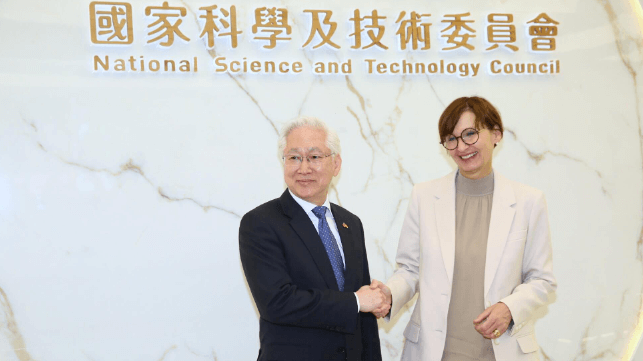To De-Risk its Trade Ties With China, Germany Turns to Taiwan

[By Karl Ragas]
On 13 July, Germany released its China strategy white paper. The 64-page document highlighted the European power’s acceptance of a “systemic rivalry” with the People’s Republic of China and outlined its recalibrated strategy to “de-risk” from its economic dependence on the latter while keeping cooperative relations on trade and solving global challenges such as the climate crisis.
The document also stated Berlin’s intentions to foster closer relations with Taiwan amid the 70-year-long sovereignty issue between Beijing and Taipei. Germany’s decision to reduce its economic dependency on Beijing and inch closer to Taiwan traces an emerging trend in European international relations – distrust of China’s economic apparatus is translating into diplomatic opportunities for Taipei.
Albeit a little late and relatively softer than the positions taken by other Central and Eastern European states such as Lithuania, Germany’s pronouncement is a considerable development. Beyond the fact that Germany is the European Union’s largest economy, the country is also the group’s largest exporter of goods to China, with trade between the two countries valued at €298.9 billion in 2022. An analysis conducted by the Ifo Institute for Economic Research last year suggested that while China only accounts for three per cent of the volume of Germany’s critical industrial goods imports, 46 per cent of German industrial firms are dependent on key intermediate goods imported from China as part of their supply chains. German firms also have a significant presence in China, with more than 5,000 German companies operating in the country. Four German firms – Volkswagen, BMW, Daimler and BASF – accounted for 34 per cent of Europe’s Foreign Direct Investment to China between 2018 and 2021, highlighting the deep economic linkage between the two states.
The German government is clear on the issue of its significant economic ties with Beijing. In a recent speech, German Foreign Minister Annalena Baerbock remarked, “Our aim is not to decouple from China, but to reduce risks as far as possible.” It is yet to be seen how that might impact relations between the two countries, especially since Chinese Foreign Ministry spokesman Wang Wenbin’s initial response was to label the political development as a form of protectionism. Nonetheless, Germany’s policy shift had been rooted in fears of a more assertive China and its practice of “creating and leveraging economic dependencies and … granting or withdrawing economic advantages” to pursue its political objectives.
Berlin’s small step back from its economic relations with Beijing appears also to have been motivated by its intentions to build closer ties with the Taiwanese government. Germany does not officially recognise Taiwan and has consistently held onto Beijing’s interpretation of the “One China Policy”. Despite the lack of official relations, however, Taiwan is Germany’s fifth most important trading partner in Asia and recent years have shown increasingly closer relations.
In March 2023, Berlin and Taipei signed an agreement for closer mutual legal assistance in criminal matters. The visit of Germany’s Minister of Education and Research to Taipei in the same month – the first German minister to visit the country in 26 years – also saw the inking of a science and technology cooperation agreement in the areas of artificial intelligence applications, semiconductors, and integrated circuit design, among others. Furthermore, discussions earlier this year focused on plans for Taiwan Semiconductor Manufacturing Company, in partnership with German-owned Bosch and two others firms, to develop a €10-billion 28-nanometer chip fabrication plant in Germany – a first in Europe.
The white paper recognises Germany’s view of Taiwan’s critical importance in the global semiconductor supply chain. Taiwan produces more than 60 per cent of the global supply of semiconductors and 90 per cent of the more advanced ones. A potential conflict in the Taiwan Strait will have significant disruptive effects on the global economy. Although Berlin’s statement was pragmatically worded and linked the European state’s interest in the stability of cross-strait relations to the global economy rather than ideological issues, it is nonetheless a diplomatic victory for Taipei. Taiwan successfully linked its security to Germany’s strategic interest.
Germany’s announcement is a positive development for Taipei to prop up the latter’s highly constrained international space. At present, only 13 countries officially recognise Taiwan’s sovereignty, and Taipei does not hold any representation in international organisations such as the World Health Assembly and Interpol. As seen in Germany and elsewhere, Taiwan can take advantage of European wariness of China’s economic coercion and increasing calls for “de-risking” to make inroads into Beijing’s diplomatic position in the continent. Taiwan needs to further tie its survival to global interests.
Karl Ragas is an international strategic marketing consultant for Southeast Asia and a graduate student of Modern East Asian Studies at Goethe University Frankfurt.
This article appears courtesy of The Lowy Interpreter and may be found in its original form here.
The opinions expressed herein are the author's and not necessarily those of The Maritime Executive.

